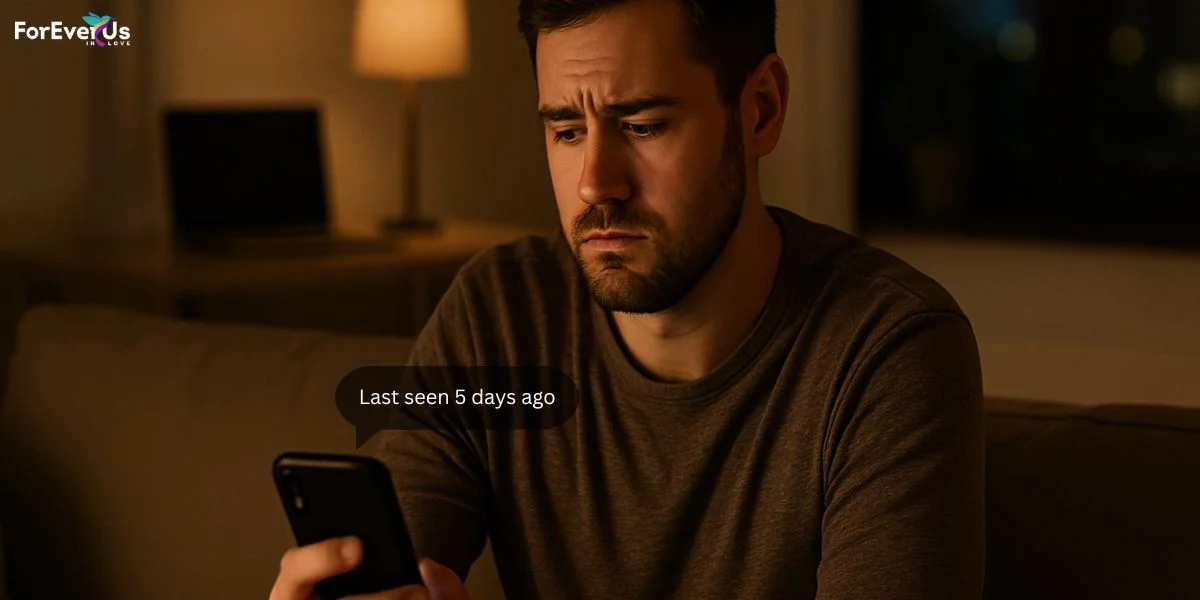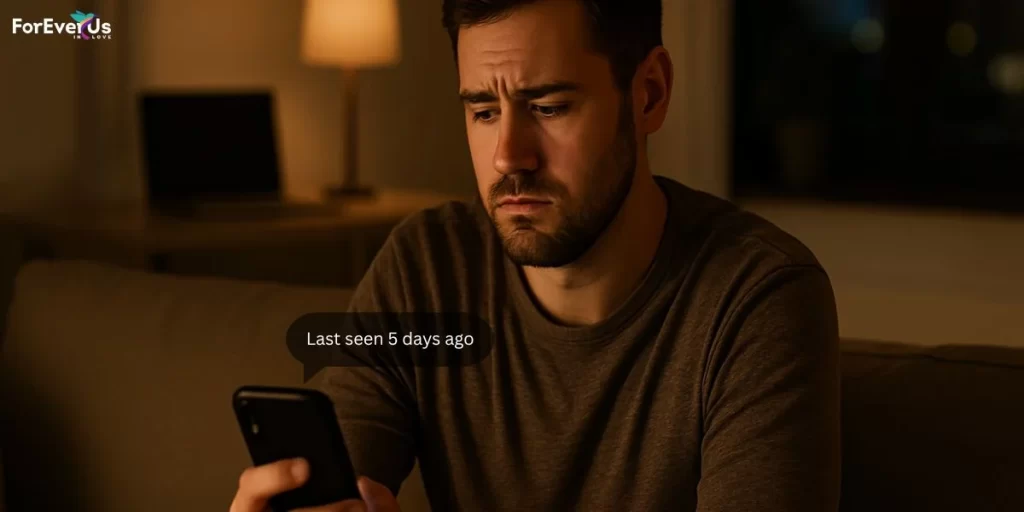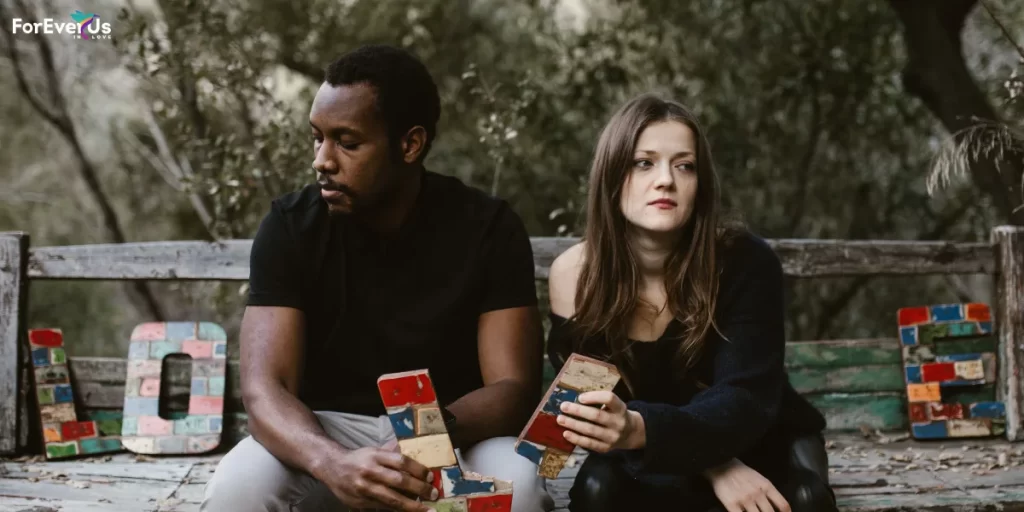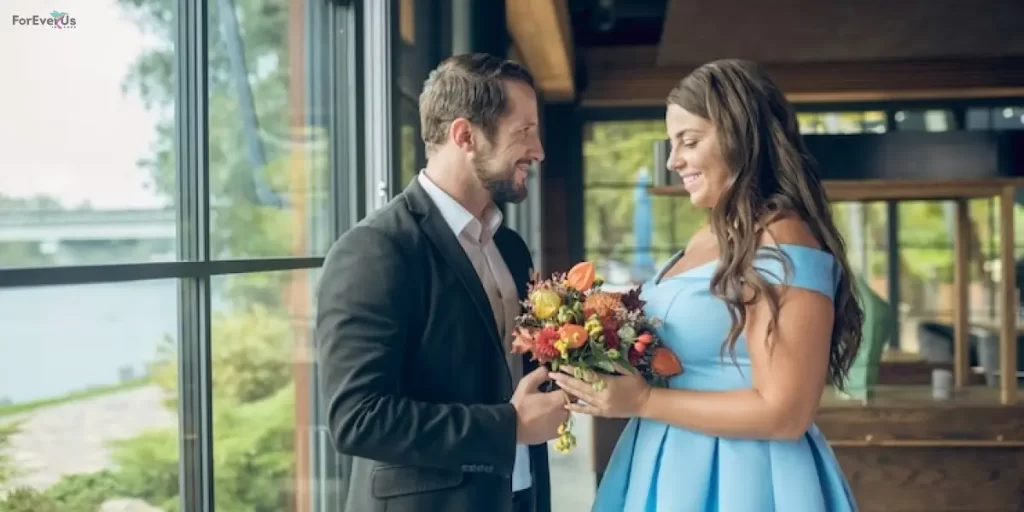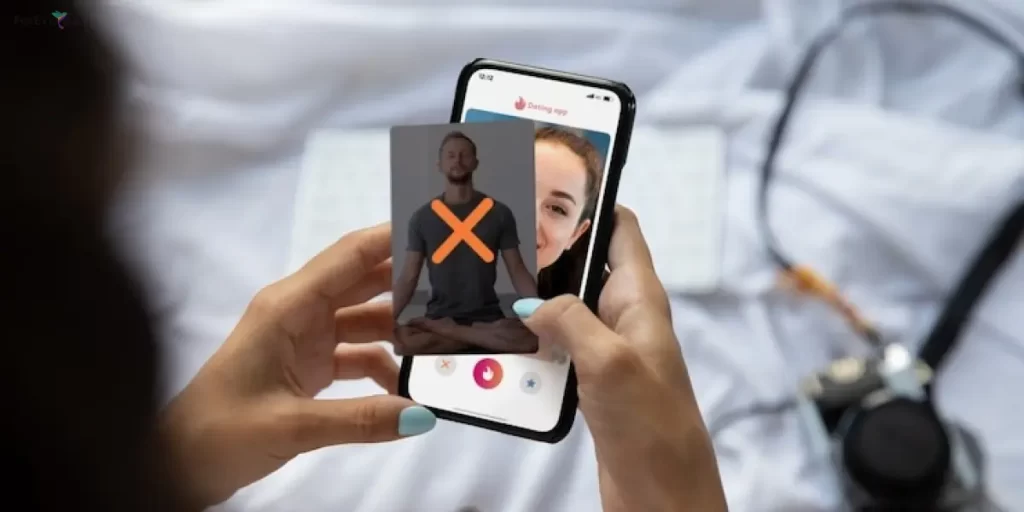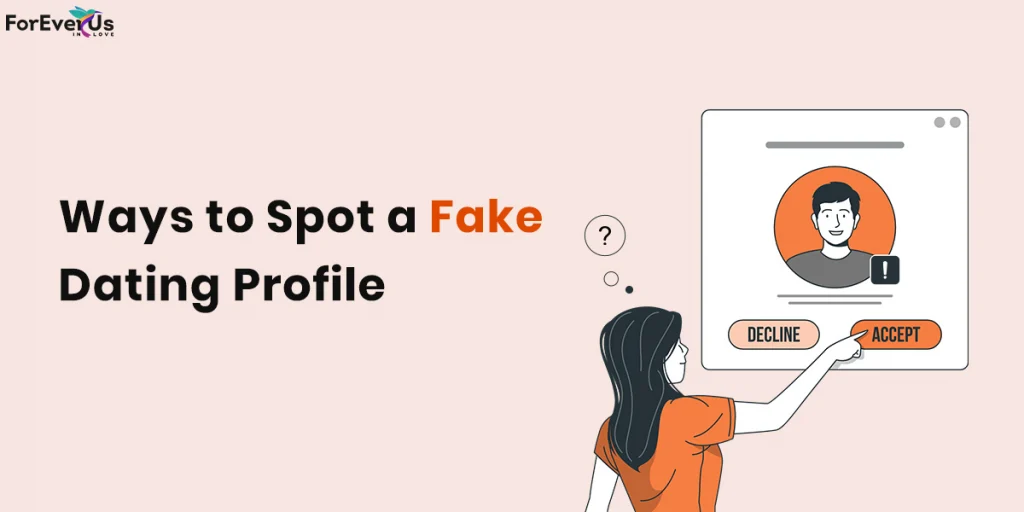You match. You chat. You vibe.
Then… radio silence. No message. No explanation. Just—poof—they’re gone. And here you are, staring at your phone, wondering, “What the hell just happened?”
If this sounds painfully familiar, you’re not alone—and no, it’s not your fault.
Ghosting in online dating has become way too common, and frankly, it sucks. Whether it was someone you really liked or just started to connect with, being ghosted can leave you feeling confused, rejected, and more than a little hurt.
Let’s break it down together. No sugar-coating, no vague advice—just real talk about why it happens, what it does to you emotionally, and how to come out stronger (and smarter) on the other side.
What Is Ghosting in Online Dating, Really?
Let’s define it clearly:
Ghosting is when someone you’ve been talking to—maybe even dating—suddenly disappears from your life without any explanation.
No “Hey, I’m not feeling it.”
No “I think we want different things.”
Just complete, uncomfortable silence.
Ghosting can happen via text, dating apps, social media DMs—anywhere digital conversations live. It usually shows up in one of a few forms:
- Digital Ghosting: They vanish after you match or talk for a bit
- Soft Ghosting: They “like” your message but never actually respond
- Zombieing: They ghosted weeks ago… but now they’re back like nothing happened
No matter how it shows up, the result is the same: you’re left wondering what went wrong.
Why Getting Ghosted Hurts So Damn Much?
Here’s why ghosting hits harder than a simple rejection: it leaves no closure.
When someone walks away with no explanation, your brain scrambles to fill in the blanks. And that often means blaming yourself—even when you’ve done nothing wrong.
It’s not just your ego. It’s your emotional wiring. You opened up, made a connection, started to trust—and they vanished. That absence of clarity messes with your head and can even trigger past rejection or abandonment issues.
And let’s be honest: When you’re serious about finding love (or even just a decent human to date), ghosting feels like a slap in the face.
Recognizing the Early Signs of Ghosting
You know the saying, “Hindsight is 20/20”?
Let’s make it foresight instead.
Here are some common red flags that often signal ghosting is on the horizon:
- Their replies get shorter, dryer, or more delayed
- You’re the one initiating every conversation
- They dodge plans or come up with vague excuses
- Conversations lose momentum—they stop asking questions
- Their energy shifts, and you can feel them pulling away
Now, not every fading text thread is a guarantee of ghosting, but recognizing the signs early can help you manage expectations and protect your emotional bandwidth.
The Psychology Behind Ghosting: It’s Not About You
This is the part you need to hear—maybe more than once: Being ghosted is not a reflection of your worth.
People ghost for their own reasons:
- They fear confrontation
- They’re emotionally unavailable
- They’re overwhelmed by the dating process
- They don’t know how to end things respectfully
- They’re simply not ready for a real connection
None of those has anything to do with you.
So stop wondering if you were too much, too open, or too eager. Ghosting speaks volumes about them, not you.
The Emotional Impact of Ghosting
Let’s be real—ghosting doesn’t just mess with your dating life. It hits deeper than that. One minute you’re excited, hopeful, maybe even daydreaming a little—and the next, you’re met with silence. No explanation. No closure. Just… gone.
That kind of vanishing act can leave behind more than confusion. It stirs up rejection, self-doubt, and even sadness that lingers longer than expected.
And guess what? That reaction is completely normal.
Ghosting creates a mental spiral. It triggers a lack of closure that your brain hates, forcing you to play detective in your own story. You start asking yourself, “Did I say too much?” or “Was I not enough?” — but the truth is, it’s not about you.
Sometimes, being ghosted touches old wounds: feelings of abandonment, past betrayals, and insecurities you thought you’d already healed from. That’s why it can feel so disproportionately painful.
But let’s make one thing clear:
Their silence does not define your value.
You didn’t do anything “wrong” just because someone didn’t have the emotional maturity to communicate. Their inability to be honest doesn’t make you any less worthy of honesty.
So, if you’re feeling heavy after being ghosted, let yourself feel it. That’s not weakness. That’s being human.
How to Deal With Ghosting Without Losing Your Mind
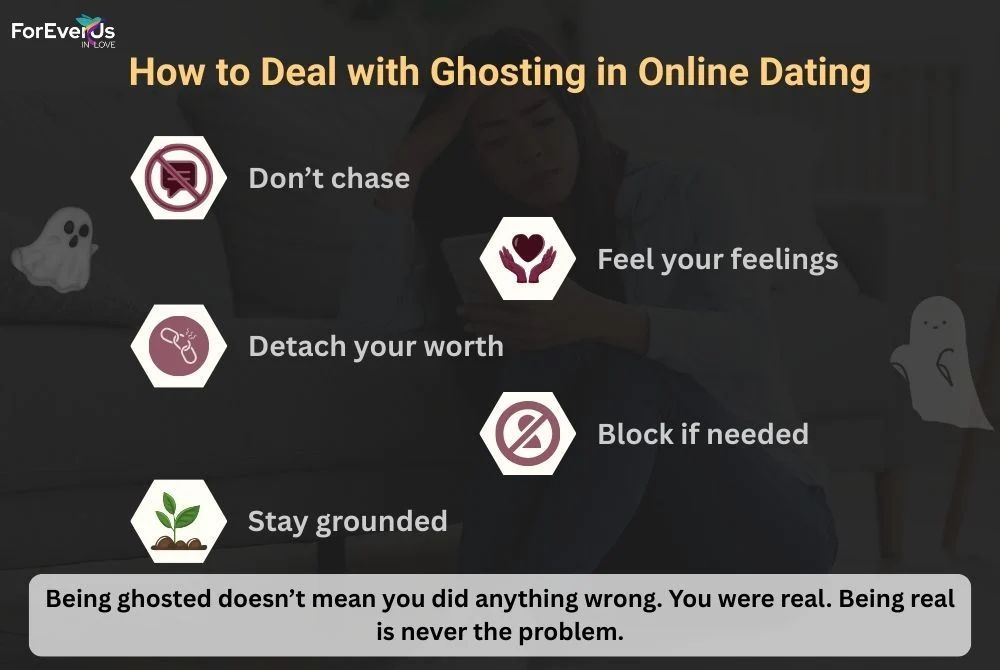
If you’re currently dealing with the sting of being ghosted, here’s how to get through it with your confidence intact:
- Don’t chase. One follow-up message is enough. If they don’t reply, take the silence as your answer.
- Feel your feelings. Don’t bury the frustration or sadness—process it. Cry, journal, vent to a friend.
- Detach your worth. Their lack of communication doesn’t define your value.
- Block if needed. Especially if you’re tempted to recheck their profile or reopen the door for “zombieing.”
- Stay grounded. Keep doing the things that make you feel good about yourself—fitness, hobbies, friendships.
You didn’t do anything wrong. You were real. Being real is never the problem.
Common Thoughts After Being Ghosted—And How to Reframe Them
It’s easy to fall into a spiral of self-doubt. But let’s flip the script:
Rejection doesn’t mean something is wrong with you. It means they weren’t right for your path.
What to Say If You Do Want to Respond
You don’t have to say anything. But if expressing yourself brings peace, here are some low-drama, self-respecting responses:
- “Hey, I noticed things went quiet. If you’re not feeling it, that’s okay. I appreciate honesty either way.”
- “No hard feelings, just prefer clarity over confusion. Wishing you well.”
Keep it short. Say it for you, not for a reply.
Rebuilding Your Confidence After Being Ghosted
Getting ghosted can shake your self-esteem, especially if it happens more than once. But this is your moment to take the power back.
- Write down your wins—romantic or not.
- Take a break from dating apps if you’re feeling burned out.
- Spend time with people who see and value you.
- Do things that make you feel magnetic, strong, and happy.
You’re still the amazing person you were before they vanished. One person’s inability to handle real connection doesn’t get to define you.
Can You Prevent Ghosting in the Future?
Let’s be honest: You can’t completely ghost-proof your dating life. But you can protect your heart by setting clear boundaries and noticing red flags early.
Here’s how:
- Be up front about how you like to communicate
- Ask direct questions like, “What are you looking for right now?”
- Pay attention to how consistent (or inconsistent) their behavior is
- Don’t overlook vibes—energy doesn’t lie
If someone isn’t meeting your emotional standards? It’s okay to walk away before they disappear.
If You’ve Ghosted Someone—Here’s How to Own It
Hey, we’ve all made mistakes. If you’ve ever ghosted someone, consider making it right:
- Reflect on why you did it
- Acknowledge that it might’ve hurt them
- Send a short message like:
“I’m sorry I disappeared. That wasn’t cool, and you didn’t deserve that. I should’ve communicated better.”
It’s never too late to own your part—and you’ll feel lighter when you do.
Final Thoughts
If someone ghosted you, they made space for someone better.
Someone who doesn’t disappear. Someone who knows how to communicate. Someone ready for what you bring to the table.
You don’t have to change who you are. You just have to protect your peace and keep showing up as your full self—for the people who are actually ready.
Because love—the real kind—never ghosts.
FAQs
Why do people ghost in online dating?
People often ghost because they fear confrontation, feel overwhelmed, or aren’t emotionally available. It’s more about their inability to communicate maturely than anything you did wrong.
How should I respond if someone ghosts me?
You don’t have to respond at all—but if it gives you closure, a calm, respectful message is enough. Just don’t chase them. Their silence is already a message.
Is getting ghosted a sign I did something wrong?
Absolutely not. Ghosting reflects their communication skills, not your worth. You were real and open, and that’s never something to regret.
Can ghosting cause emotional damage?
Yes. Ghosting can trigger feelings of rejection and confusion and even resurface past trauma. That’s why it feels so personal—but healing starts with remembering it’s not your fault.


